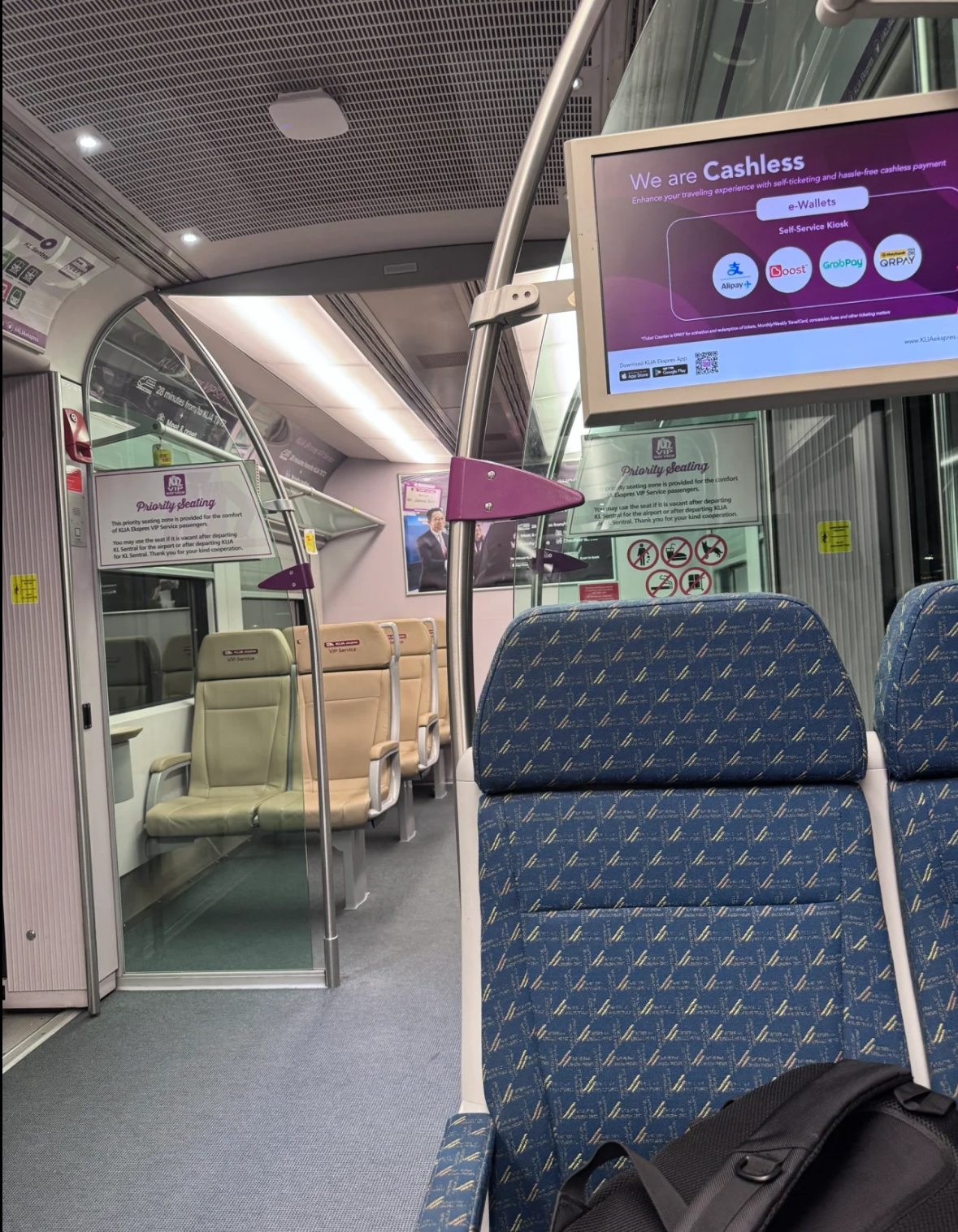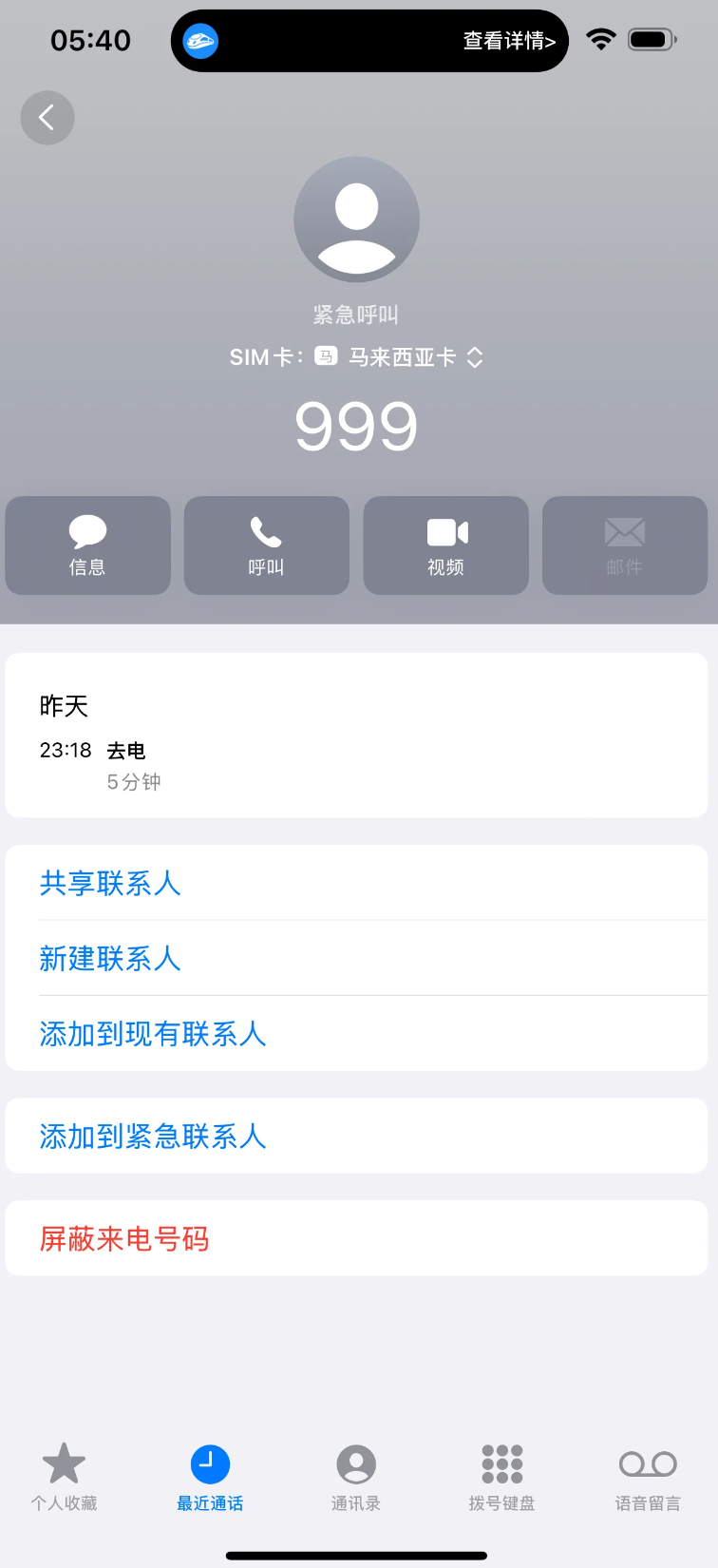- Joined
- Apr 14, 2011
- Messages
- 18,579
- Points
- 113
Singapore is still better!
 Photo via XHS/Lalisa
Photo via XHS/Lalisa
The KLIA Express offers a non-stop connection to Kuala Lumpur Sentral at RM55 per adult.
However, the tourist appeared to expect the fare to be RM8.5 per person, which likely referred to the KLIA Transit.
The KLIA Transit, a separate service, stops at intermediate stations, including Putrajaya Sentral, at a lower fare.
Due to her unfamiliarity with the system, she asked a staff member for help. The staff assisted with the payment, but to her surprise, the total came to RM110 for two KLIA Express tickets.
 Photo via XHS/Lalisa
Photo via XHS/Lalisa
 Photo via XHS/Lalisa
Photo via XHS/Lalisa
Her post quickly gained traction online, attracting a flurry of responses from Malaysians.
One commenter criticized her reaction: “Filing a police report over this? Didn’t you say you don’t understand the language? Do some research before traveling. RM55 might be a bit expensive, but it’s not outrageous enough to call the police.”

Another user advised, “If you’re concerned about language barriers, it’s better to join a tour group. You can’t expect everyone to speak Mandarin, especially since Mandarin isn’t Malaysia’s main language.”

A more critical comment questioned her expectations: “Why must everyone speak Mandarin? I don’t understand. Do Chinese tourists expect locals to accommodate them by speaking Mandarin wherever they go?”

The post continues to draw widespread attention, sparking discussions about cultural expectations and the responsibilities of travelers and hosts.
China Tourist Vows To Never Visit M’sia Again, Says It Has Few Chinese Signboards And Weird English Accent
A Chinese tourist’s complaints about Malaysia have gone viral, stirring debate online. The traveler vowed never to visit the country again, citing difficulties with the lack of Chinese-language signboards and challenges understanding the local English accent.
Confused over KLIA Express machine
In her Xiaohongshu post, the tourist shared her experience with public transport at Kuala Lumpur International Airport (KLIA), specifically mentioning confusion over the KLIA Express ticketing machine.
The KLIA Express offers a non-stop connection to Kuala Lumpur Sentral at RM55 per adult.
However, the tourist appeared to expect the fare to be RM8.5 per person, which likely referred to the KLIA Transit.
The KLIA Transit, a separate service, stops at intermediate stations, including Putrajaya Sentral, at a lower fare.
Due to her unfamiliarity with the system, she asked a staff member for help. The staff assisted with the payment, but to her surprise, the total came to RM110 for two KLIA Express tickets.
Found no Mandarin-speaking staff
The tourist expressed frustration, saying she would have taken a Grab ride to the city for the same cost had she known earlier.Following this incident, she attempted to get a refund but found no Mandarin-speaking staff to assist her.“I barely understand English, and the locals’ pronunciation is hard to grasp. I was misled into thinking it was an affordable metro, but it turned out to be the RM55 express line.
Xiaohongshu said that it’s fine even if your English isn’t good in Malaysia, but I didn’t expect there to be so few Chinese signboards,” she added.

Reported to police
Frustrated by what she felt was poor service, she reported the incident to the police, only to be told that it was not a matter they could address.
Her post quickly gained traction online, attracting a flurry of responses from Malaysians.
One commenter criticized her reaction: “Filing a police report over this? Didn’t you say you don’t understand the language? Do some research before traveling. RM55 might be a bit expensive, but it’s not outrageous enough to call the police.”

Another user advised, “If you’re concerned about language barriers, it’s better to join a tour group. You can’t expect everyone to speak Mandarin, especially since Mandarin isn’t Malaysia’s main language.”

A more critical comment questioned her expectations: “Why must everyone speak Mandarin? I don’t understand. Do Chinese tourists expect locals to accommodate them by speaking Mandarin wherever they go?”

The post continues to draw widespread attention, sparking discussions about cultural expectations and the responsibilities of travelers and hosts.
